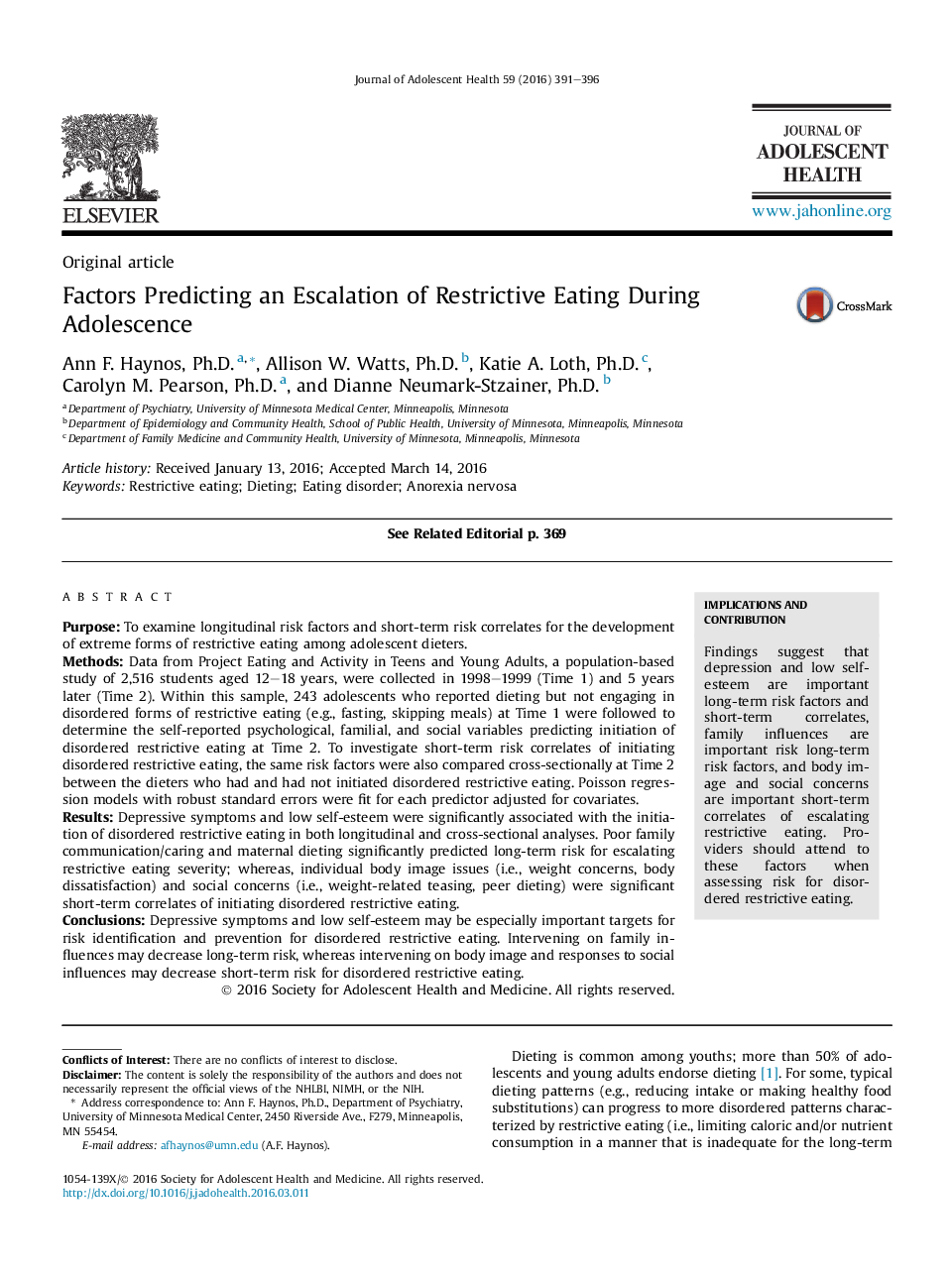| کد مقاله | کد نشریه | سال انتشار | مقاله انگلیسی | نسخه تمام متن |
|---|---|---|---|---|
| 5121434 | 1378301 | 2016 | 6 صفحه PDF | دانلود رایگان |
PurposeTo examine longitudinal risk factors and short-term risk correlates for the development of extreme forms of restrictive eating among adolescent dieters.MethodsData from Project Eating and Activity in Teens and Young Adults, a population-based study of 2,516 students aged 12-18 years, were collected in 1998-1999 (Time 1) and 5Â years later (Time 2). Within this sample, 243 adolescents who reported dieting but not engaging in disordered forms of restrictive eating (e.g., fasting, skipping meals) at Time 1 were followed to determine the self-reported psychological, familial, and social variables predicting initiation of disordered restrictive eating at Time 2. To investigate short-term risk correlates of initiating disordered restrictive eating, the same risk factors were also compared cross-sectionally at Time 2 between the dieters who had and had not initiated disordered restrictive eating. Poisson regression models with robust standard errors were fit for each predictor adjusted for covariates.ResultsDepressive symptoms and low self-esteem were significantly associated with the initiation of disordered restrictive eating in both longitudinal and cross-sectional analyses. Poor family communication/caring and maternal dieting significantly predicted long-term risk for escalating restrictive eating severity; whereas, individual body image issues (i.e., weight concerns, body dissatisfaction) and social concerns (i.e., weight-related teasing, peer dieting) were significant short-term correlates of initiating disordered restrictive eating.ConclusionsDepressive symptoms and low self-esteem may be especially important targets for risk identification and prevention for disordered restrictive eating. Intervening on family influences may decrease long-term risk, whereas intervening on body image and responses to social influences may decrease short-term risk for disordered restrictive eating.
Journal: Journal of Adolescent Health - Volume 59, Issue 4, October 2016, Pages 391-396
